November 21st. – World Fishing Day
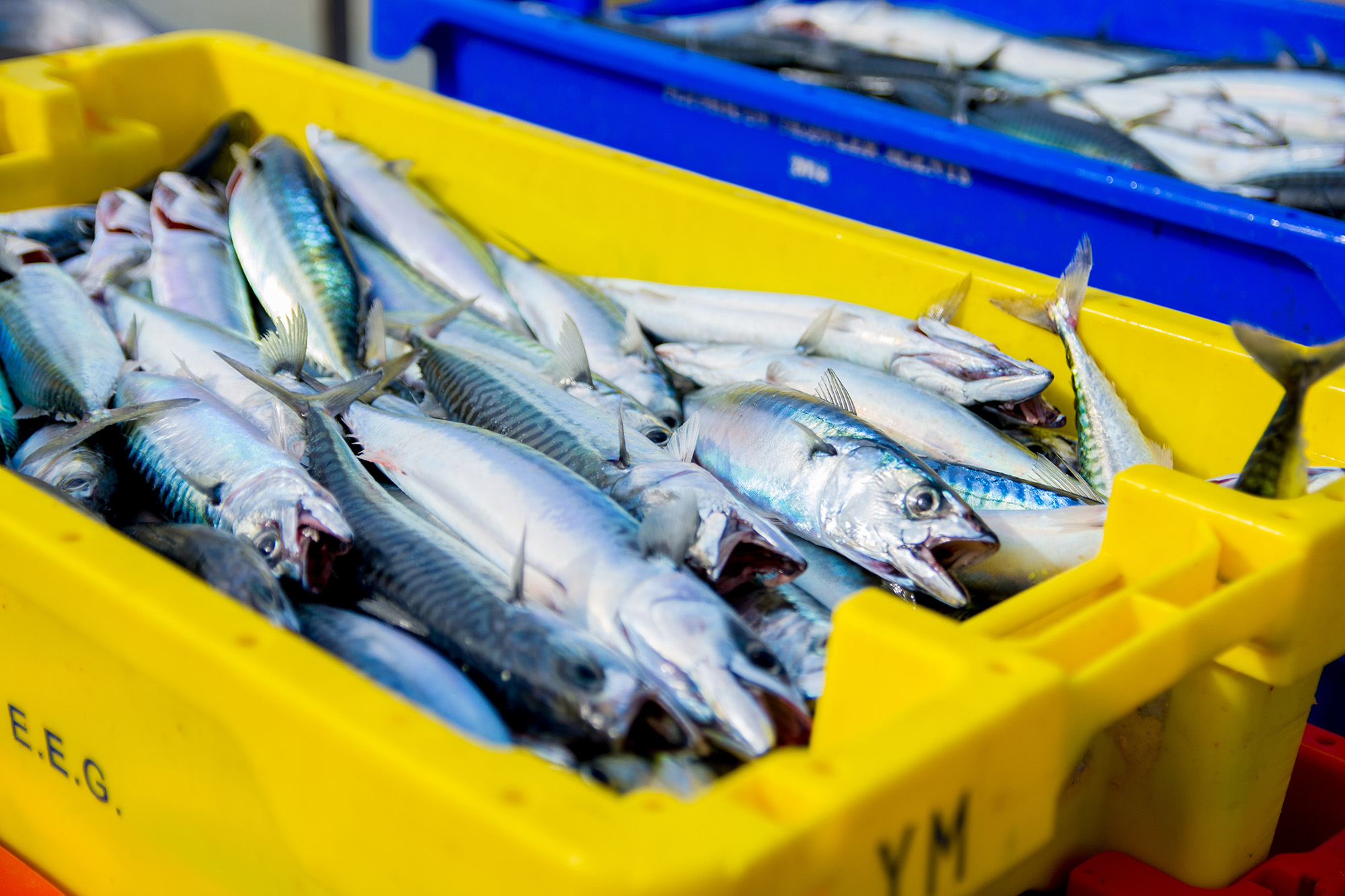
World Fishing Day is celebrated every year on November 21st. around the world by fishing communities, who seek to make visible the importance of maintaining fisheries.
This day is used as an important reminder that efforts must be made to change the way the world manages international fisheries and thus ensure sustainable populations and healthy ocean ecosystems.
As we do on the International Day of Biological Diversity, from the SARAS Institute we invite the members of our Network of Associated Researchers to share with our community some reflections, as well as recommendations for other materials which complement their vision.
We hope that these contributions and perspectives, as well as the images and shared resources, will be of help to broaden the view, get involved and take action.
Behind an apparent communion between fishers and their productive activity, to the point of describing fishing as a “way of life”, fishers face a scenario of subjective, material, and relational imbalance of their self-representation that makes it difficult the fulfillment of their aspirations for well-being. Certain difficulties in the ability to meet their basic needs day by day through fishing, as well as various institutional obstacles, prevent expanding the transformative potential of artisanal fishing. Recent research confirms that fishers are capable of promoting social processes that positively influence cultural representations, reconfiguring the way they perceive themselves and/or are perceived by the rest of society.
Historically artisanal fishing in Uruguay has received less attention than it deserves, but a growing wave of fishers and entrepreneurs are challenging the status quo. Through alliances with the gastronomic sector, researchers, government actors, and local development initiatives, innovative and transformative initiatives that have the potential to turn the tide are being developed and consolidated. Within the framework of the thematic cycle linked to the IX SARAS Public Conference on Food and Sustainability, and given that artisanal fishing is part of a food system that transversally connects the flavors and culture of the sea, lagoons, and rivers among fisher, chefs, and diners, we have created the Artisanal Fishing Transformative Catalog in hopes that it will be an inspiring tool for many. The Catalog consists of a collection of stories corresponding to eleven innovative initiatives to find out first-hand the who, how, and why behind each seed of change. We invite you to explore it!
Dr. Micaela Trimble
SARAS Institute Associate Researcher
Reference: Santos, P., Trimble, M. & D. Johnson. 2021. Balancing hope and disappointment: Representation, social wellbeing, and the future of small-scale fisheries in Uruguay. Development in Practice 31 (5): 580-591.
https://doi.org/10.1080/09614524.2021.1907532

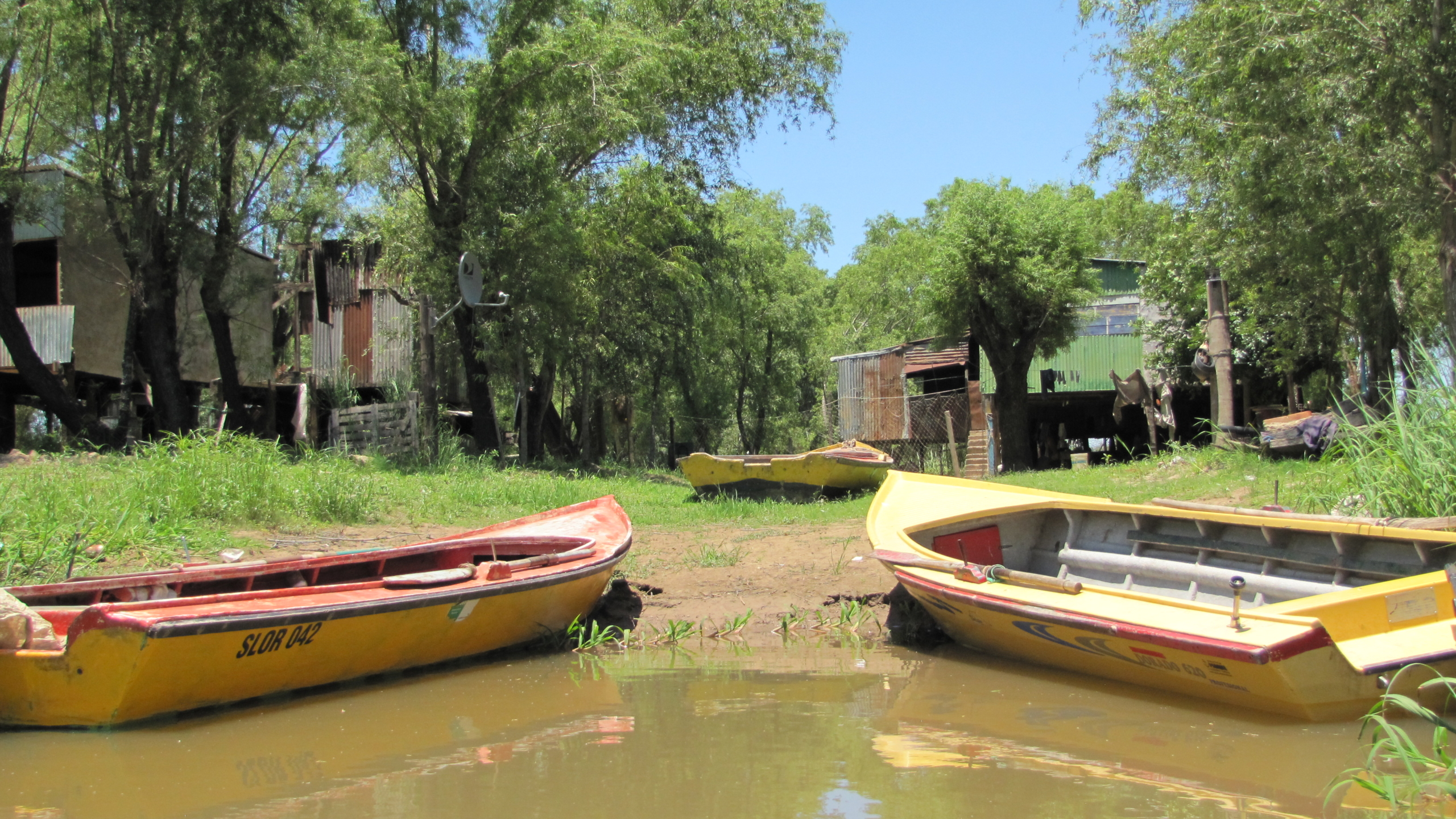
Photograph by Trilce Castillo
Fishermen’s neighborhood in Isla El Espinillo (Rosario, Argentina), 12-19-2014
Artisanal fishing represents the cultural heritage of our rivers and seas. Fishermen are the ones who maintain this traditional activity, transmit their practices from generation to generation, contribute to the food sovereignty of the region, and have valuable information on critical areas for the preservation of fish communities.
It is necessary to strengthen the livelihoods of fishermen, recognize and respect their fishing territories, and consider them in the territorial ordering of river and marine spaces.
Involving fishermen in the design of public policies oriented to the management of fisheries and the conservation of fishery assets is no longer an option but a condition to generate sustainable and adaptive practices in aquatic socio-ecological systems.
Dr. Trilce Irupé Castillo
Coordinator of the Conservation Area of the Islas de Santa Fe National Park (PNISF-APN)
Professor in the Natural Resources Degree (FCA-UNR)
Artisanal fishing – often done in canoes or small boats – is relevant to nutrition and food security, poverty alleviation, livelihoods, and local and national economies. However, its cultural and well-being dimensions are often invisible in political and managerial debates.
A fisherman once told me: “The canoe race is a traditional event that represents togetherness, party, friends, joy, something great. It brings together traditional fishermen from the north to the south of the city. The canoe represents [the] way you work. [artisanal fishing] and you move in the water. We maintain this old tradition that includes dance, the union of traditional communities that has stood out every year. Being with friends, talking, sharing, and fishing. It is the event that brings people together of your culture [so that] you can experience your fishing culture. We need it! ” (Artisanal fisherman from Ubatuba, Brazil – 2018)
Therefore, the canoe is a manifestation of social identity in the traditional cultures of fishing communities in Brazil and has also been observed in other places. In this regard, the crucial role of the canoe draws attention to a range of identity, spiritual, relational, and material benefits of artisanal fisheries that can help achieve better governance outcomes.
Ph.D. Ana Carolina Esteves Dias
Universidad de Waterloo (Canadá)
References:
– Dias, A.C.E. and Armitage, D., 2021. Ecosystems, Communities and Canoes: Using Photovoice to Understand Relationships Among Coastal Environments and Social Wellbeing. Researching People and the Sea: Methodologies and Traditions, pp. 159-179.
https://link.springer.com/content/pdf/10.1007/978-3-030-59601-9_8.pdf
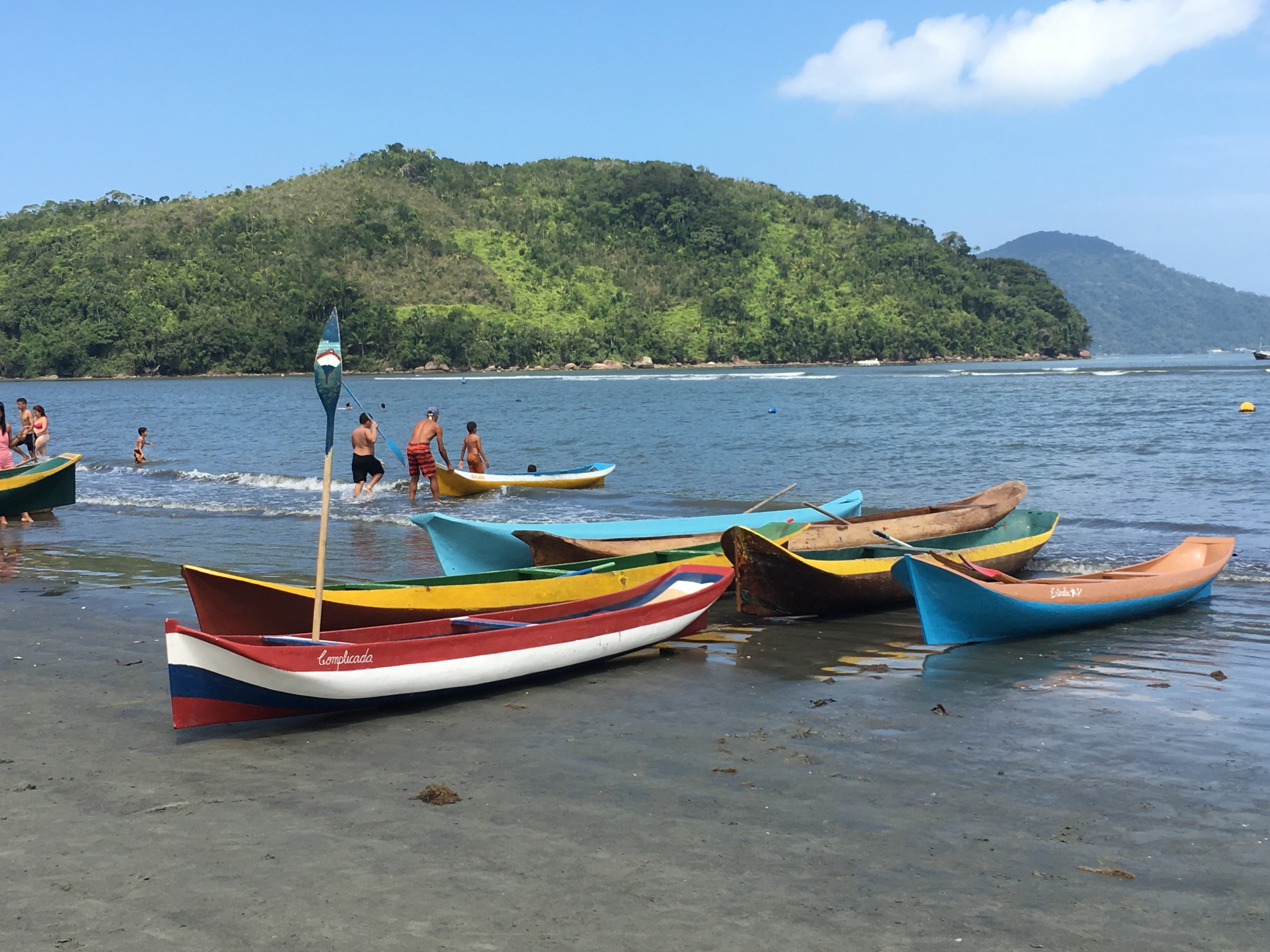
Photo: Canoes of artisanal fishermen from Ubatuba, Brazil
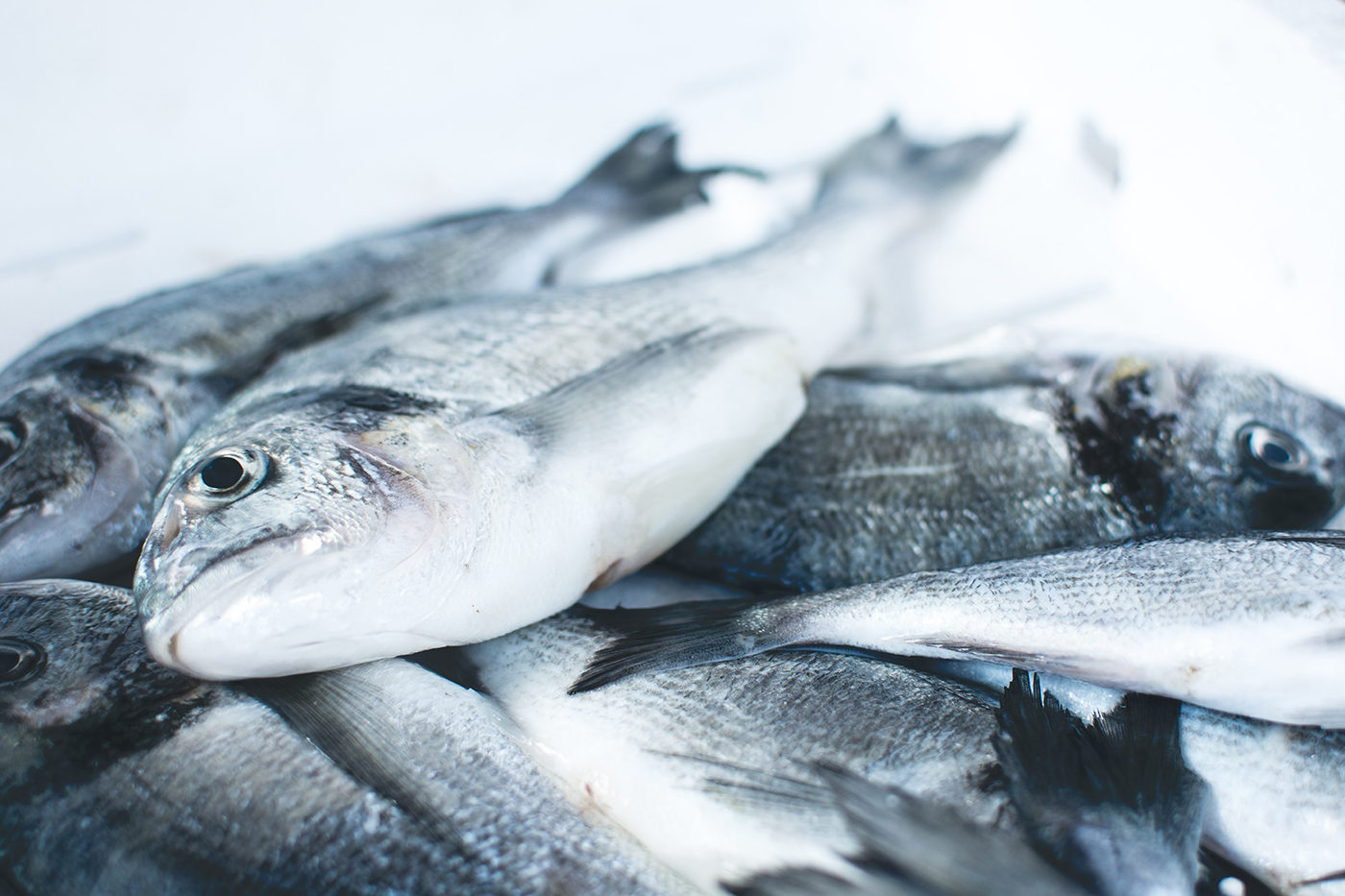
Photograph by Jakub Kapusnak / Unsplash
Fishing is the only large-scale food-supplying sector that is still entirely dependent on wild animal populations. Sustaining this source of proteins and micronutrients in the future, without compromising and functionally modifying ecosystems, depends on proper management and governance on our part. For this, we must also respect the right of fishermen and women, defend fishing against gentrification, leave behind unsustainable practices and advocate for socially and ecologically responsible consumption. The vindication of the figure of “fisherman” and “fisherwoman”, and the improvement of the livelihoods of those who depend on fishing will be a necessary condition if we imagine a future where fish will be the protagonist of our tables.
Perhaps listening to the world’s fishermen and women are the most important thing.
“It is not fish you are buying, it is people’s livelihoods” – Sir Walter Scott
PhD candidate Ignacio Gianelli
University of Santiago de Compostela (Spain)
Close to Finisterre, guardians and deep connoisseurs of our seas, the relationship of artisanal fishermen with local communities comes from time immemorial. Its connection with the sea has generated a deep integration in our uses, customs, and social traditions, through various artistic, gastronomic, and language manifestations.
“The sand, still wet from the rain, gave off that fresh and penetrating aroma of the seas that rejuvenates the spirits; and the silence of the beach, interrupted by joyful music and uproarious laughter, seemed to have moved away with a light step from that place where he had enjoyed long days of calm and rest ”.
“The Daughter of the Sea” (1859), Rosalía de Castro
Dr. Sebastian Villasante
University of Santiago de Compostela (Spain)
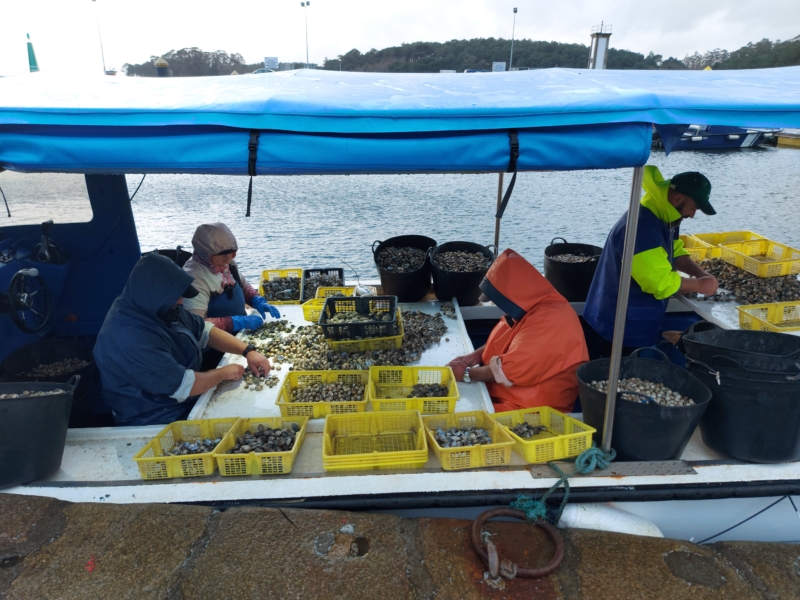
Photograph by Sebastián Villasante
Artisanal fishermen from Carril (Galicia)
Recently published papers recommended by Dr. Stefan Gelcich
Member of the Advisory Council SARAS Institute
Director of the SECOS Millennium Institute
World fish production has stabilized at 90 million tonnes since the mid-1990s, but the percentage of overexploited resources has increased, now accounting for a third of the world’s resources. While many fisheries have been successful due to the implementation of effective management measures, this has not happened in cases of weak governance. The situation is particularly critical in developing and offshore countries, where almost half of the resources are overexploited and/or collapsed. Reversing this situation is a short-term necessity, taking into account that the per capita consumption of seafood has almost tripled in the last 60 years and that fish production is of strategic importance as a high-value food source. nutrition for millions of people in vulnerable situations.
The great transformation that fishing systems need, particularly in developing countries, is a drastic change in governance, with State policies developed in a plural, proactive, and effectively participatory framework, which generate long-term plans for the achievement of sustainable catches and comprehensive development of post-extractive processes in the value chain. The need to transform the governance of fisheries and oceans, in general, is motivated by several factors, including safeguarding the integrity of resources and their ecosystems, the need to ensure the rights of the most vulnerable fishing communities, and the development of a humane and transparent economy both in coastal areas and on the high seas, where the interests of a few countries and transnational corporations prevail over the common good. For this, it is necessary to have the political will, solid institutions, and transparent development strategies that allow decisions based on scientific knowledge.
As Elinor Ostrom, the 2009 Nobel laureate in economics, stated, many government policies have accelerated the deterioration of natural resources. Therefore, as custodians of shared resources, fishers play a leading role in ensuring the sustainable use of resources and the conservation of ecosystems on which hundreds of millions of people around the world depend. , many of them extremely vulnerable and dependent on fishing. The effective participation of resource users in decision-making through solid governance frameworks catalyzes a democratic and participatory process where all voices are represented and where society as a whole contributes to the generation of sustainable fisheries management plans. and with intergenerational equity. The worrying situation on the high seas, where the excessive and little planned exploitation of fishery resources has multiplied in recent years, calls in the short term for the development of solid and transparent transnational global governance schemes that make it possible to reverse the growing overexploitation of fish. resources and their impact on the integrity of ecosystems.
Science plays a fundamental role in catalyzing the transformations necessary to reverse the delicate situation of overexploitation. Decision-making must be supported by scientific knowledge and those derived from traditional knowledge, which provides interdisciplinary bases to consolidate management plans and shape fishing laws and policies. In particular, as scientists, we are responsible and guarantors before society in developing such interdisciplinary knowledge to generate fair, equitable, transparent, and sustainable schemes in these fragile natural resources that provide food security and nutritional level to millions of people in the world.
Ph.D. Omar Defeo
Professor in the Marine Science Lab at the Universidad de la República in Uruguay
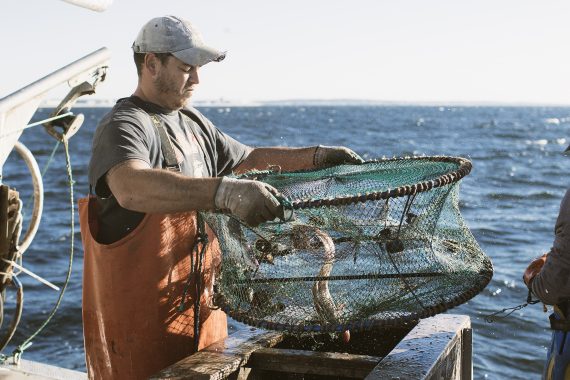
Photo by Pacto Oceánico
The Transforming Catalog of Artisanal Fishing consists of a collection of stories that intertwine experiential and literary experiences to know first-hand the who, how, and why behind each seed of change in artisanal fishing in Uruguay. In each story, we place special emphasis on the objectives of each innovative initiative and on the strategies that have been implemented to achieve them. The Catalog is committed to storytelling to awaken the interest of society and thus learn more about the world of fishing. With each story, we dare to imagine that artisanal fishing is the protagonist of our food system.
The purpose of the Catalog is to publicize the efforts that are being made, promote synergies and together imagine plausible and promising futures of artisanal fishing. The innovation of the initiatives that make up the Catalog lies in various and multiple aspects: new ways of perceiving fishing activity, new ways of revaluing the culture of artisanal fishing, new ways of linking fishing and gastronomy, new technologies to reduce the environmental impact of fishing, new ways of ensuring optimal food quality, and new ways of co-producing knowledge.
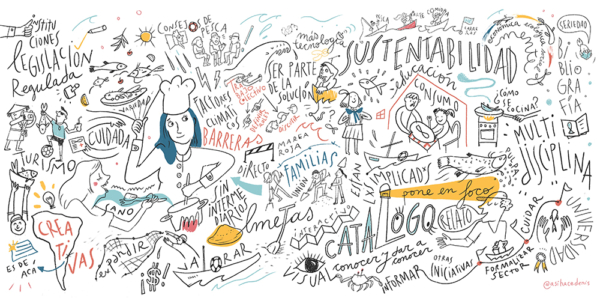
Illustration made by illustrator Denisse Torena during the Workshop: “Dialogues from innovative initiatives in artisanal fishing: savoring transformative changes in Uruguay” (only in Spanish) within the framework of the 2019-2021 Thematic Cycle of “Food and Sustainability – Knowledge on the Table”
